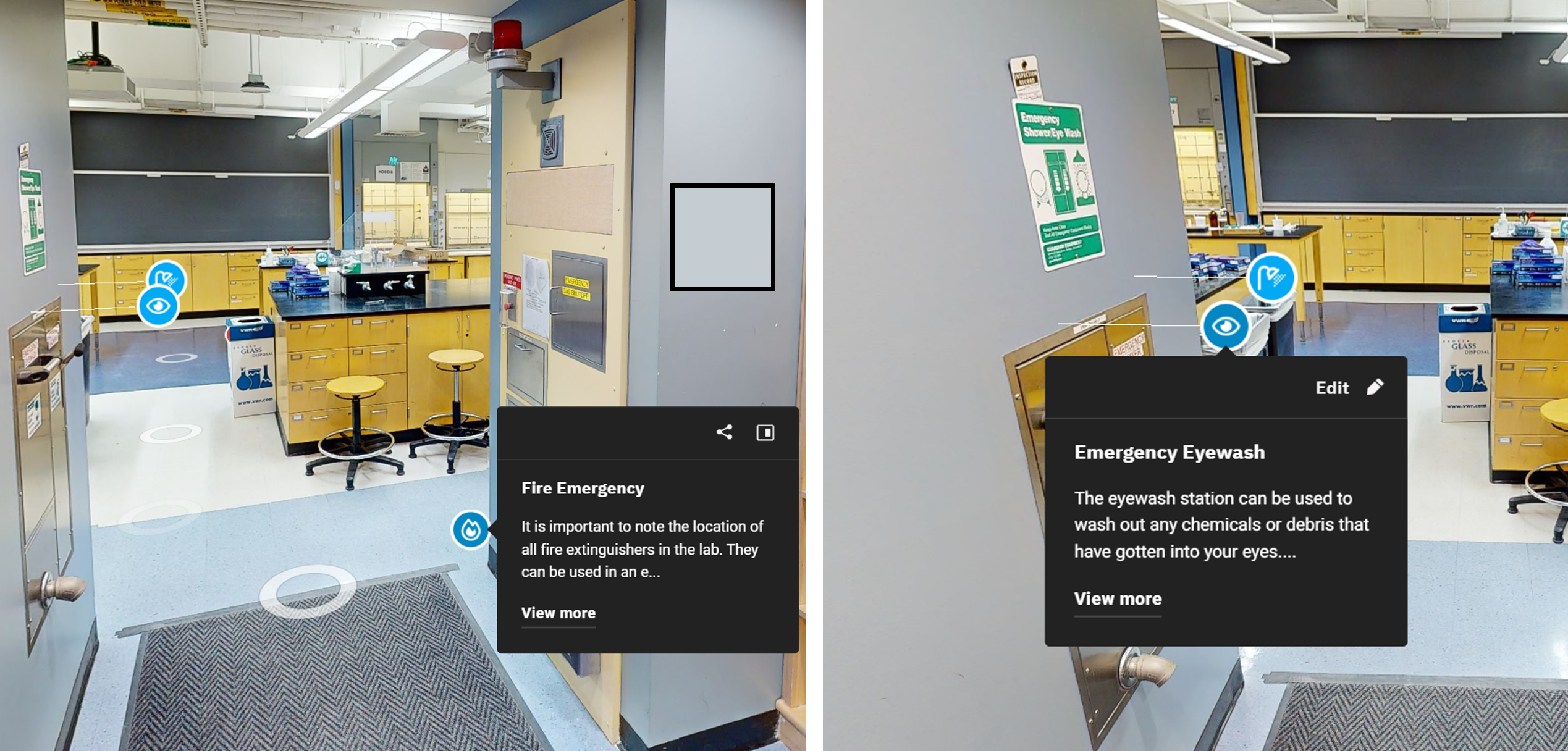360 Lab Tours
Immersive virtual tours and training experiences for research labs, classrooms, and exhibitions at WPI to enhance accessibility and engagement.
Years Active: 2021-current
As a member of WPI Academic Research Computing (ARC), I led the creation of immersive virtual tours using Matterport technology. This initiative began in 2020, at a time when global travel and in-person visits were limited by the COVID-19 pandemic, and the need for remote access to labs and facilities became urgent. My motivation for this project is deeply personal: during my undergraduate studies in pharmaceutical engineering at Wuhan, China, I experienced the lockdown firsthand in my senior year. Physical lab access was impossible, and as a teaching assistant for a pharmaceutical chemistry course, I helped introduce 2D simulation software for lab experiments. While these tools provided some continuity, I found that they lacked the authenticity and spatial context of a real laboratory. This realization inspired me, as I transitioned to graduate studies and HCI research at WPI, to explore and develop more immersive virtual lab experiences.
The result is a suite of virtual tours and training modules that bridge the gap between physical and digital learning environments, making labs, classrooms, and exhibitions accessible to a wider audience.
In addition to developing these virtual tours, I also provide training sessions for students and faculty on how to use and experiment with Matterport technology. I support and encourage new applications, including building a custom learning system with the Matterport API to track exploration progress and assess spatial understanding, exporting scanned meshes for use in 3D modeling software or game engines for enhanced interactivity, and developing a robotic platform that enables remote control of the Matterport camera.
Showcasing research facilities and laboratories
These virtual tours highlight advanced research environments, allowing viewers to explore specialized labs and centers. This is especially valuable for prospective students, collaborators, and visitors who cannot be physically present, offering a detailed look at the facilities and their capabilities.
Embedding learning materials and lab safety training
Virtual lab trainings extend classroom access by providing spatial and contextual understanding of lab environments before classes begin. This is particularly useful when class time is limited, as students can familiarize themselves with the space and safety protocols at their own pace, even after hours.
We developed a proof-of-concept scavenger hunt game for learning safety protocols with a virtual tour, read about it at (Chen et al., 2024).
Digitizing archives and exhibitions
Digital archives of library exhibitions serve as a lasting record of rotating displays, making them accessible to alumni, guests, and anyone unable to visit in person. By digitizing these exhibitions, their impact and reach are extended, allowing them to be shared widely and preserved beyond their physical duration.
I enjoy working with creative professionals to provide a 360-degree tour as an alternative means of documenting temporary shows and to explore the creativity of interactive environmental storytelling. For example, my friend Katherine Crighton uses this tool and creates a digital copy of their pop-up exhibition.
